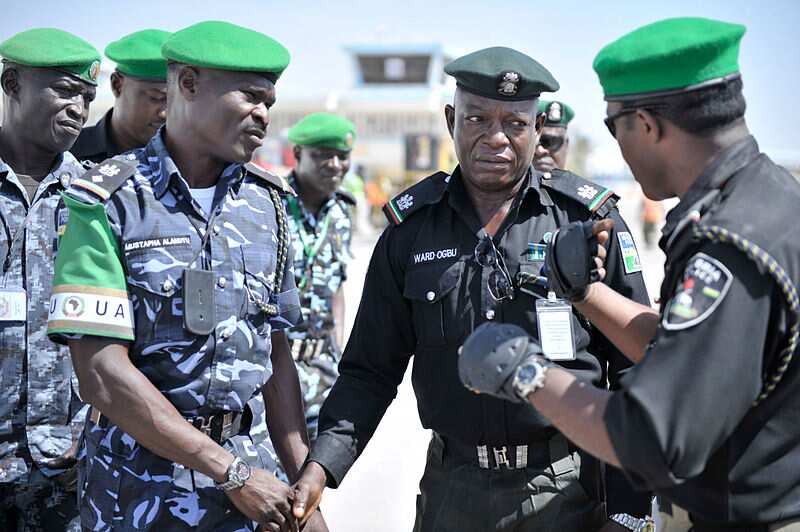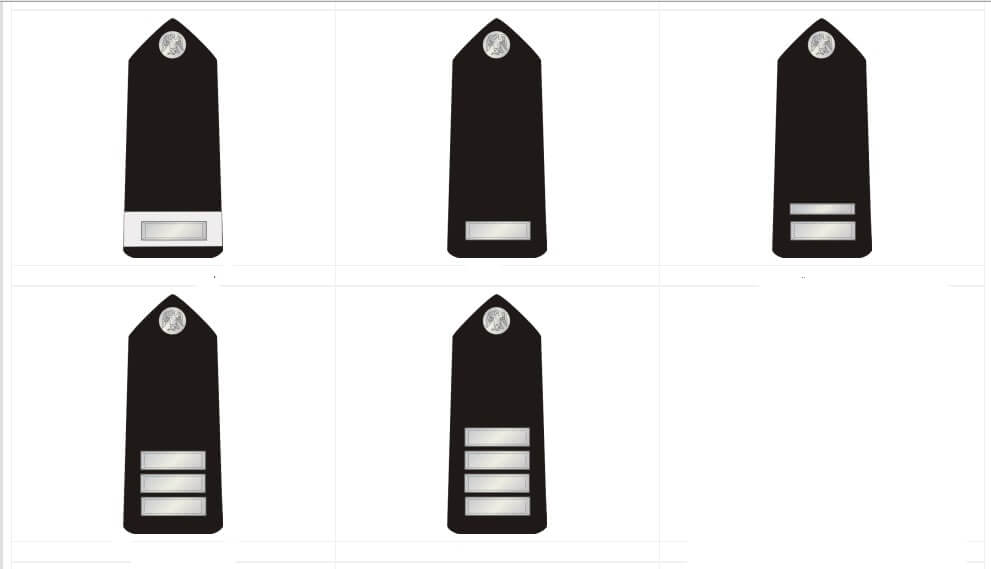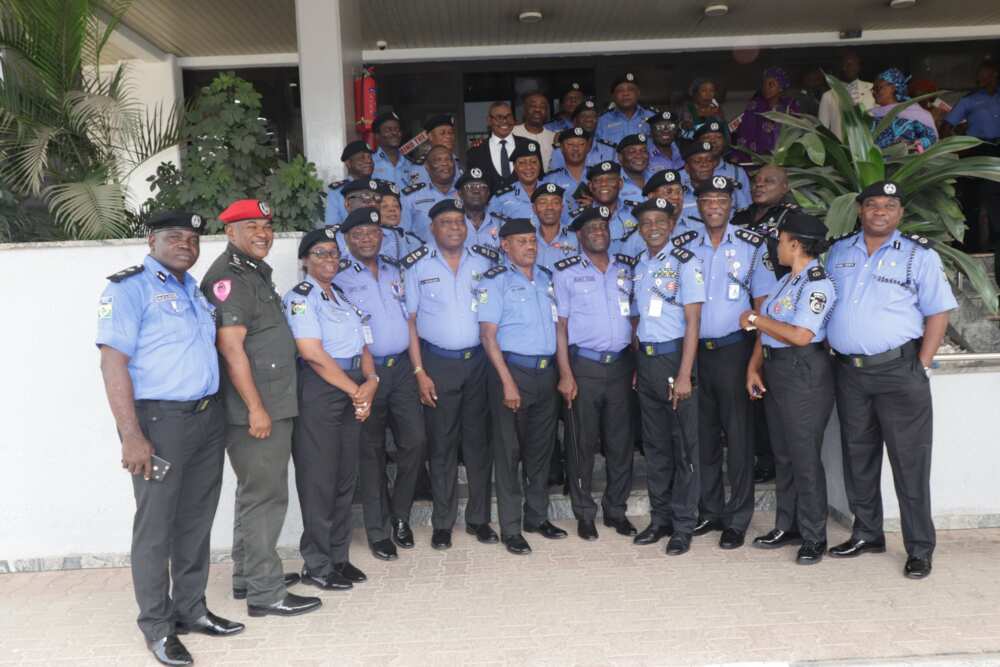Nigeria Police Force Ranks: A Guide
What distinguishes a Constable from an Inspector-General within the Nigeria Police Force? The answer lies in a meticulously structured hierarchy that dictates authority, responsibility, and career progression within the NPF. This complex system, stretching from the foundational Constable to the apex of the Inspector-General, is crucial for maintaining order, discipline, and effectiveness within Nigeria's primary law enforcement agency.
The Nigeria Police Force (NPF), responsible for upholding law and order across the nation, operates under a clearly defined ranking system. This hierarchy not only delineates levels of authority but also shapes the career trajectory of every officer, from their initial recruitment and training to the pinnacle of their service. Each rank carries specific responsibilities, contributing to the force's overall ability to maintain public safety and enforce the rule of law. This intricate structure ensures that the NPF can effectively address the diverse security challenges facing Nigeria.
| Rank Structure of the Nigeria Police Force |
|
|---|---|
| Clarification on DPO | DPO (Divisional Police Officer) is not a rank, but a designation for the operational head of a police station. This position is typically held by a CSP. |
| Salary Structure | Salaries within the NPF vary according to rank and experience. Recent announcements by President Muhammadu Buhari have signaled increases in police salaries, demonstrating a commitment to improving the welfare of officers. Specific salary details can be found through official government sources. |
| Importance of Ranking System | The hierarchical structure is fundamental to maintaining discipline, defining career progression paths, and ensuring the effective execution of police duties. Each rank carries specific responsibilities, contributing to the overall efficiency and effectiveness of the NPF in maintaining public safety and upholding the rule of law. |
| Reference | Nigeria Police Force Website |
The Nigerian Police Forces ranking structure is not merely a symbolic ladder. It is the backbone of operational efficiency, ensuring clear lines of command and accountability. From the recruit undergoing rigorous training to the seasoned Inspector-General charting the course for the entire force, every rank plays a vital role. The system fosters discipline, promotes professionalism, and provides a framework for career advancement. The recent salary increments further underscore the importance placed on the well-being and motivation of these individuals tasked with safeguarding the nation.
Understanding the nuances of this ranking system is crucial for anyone aspiring to join the NPF or simply seeking a deeper comprehension of Nigerias security apparatus. The hierarchy is more than just titles and insignias; it represents a complex web of authority, responsibility, and dedication to maintaining law and order throughout the country. It is a system constantly evolving to meet the changing security needs of a dynamic nation, reflecting the vital role the police play in Nigerian society. The NPF's commitment to structure and hierarchy reflects its dedication to serving and protecting the citizens of Nigeria.
The Nigeria Police Force acknowledges the challenges it faces and is continually striving to improve its effectiveness. Public trust is paramount, and the force is committed to enhancing its relationship with the communities it serves. The ranking structure, with its inherent emphasis on responsibility and accountability, plays a crucial role in these ongoing efforts to build a more robust, responsive, and respected police force. The NPF remains dedicated to its mission of safeguarding lives and property, upholding the law, and ensuring a secure environment for all Nigerians.
Beyond the individual ranks, the system itself represents a deeper commitment to professionalism, discipline, and accountability within the NPF. The force understands that a well-structured hierarchy is essential for effective law enforcement and is continually working to refine and improve its system to better serve the nation.



Detail Author:
- Name : Miles Schneider III
- Email : earnest.conn@corkery.info
- Birthdate : 1973-08-02
- Address : 2459 Sauer Summit Apt. 829 New Izaiah, MS 20698-9141
- Phone : (740) 656-7741
- Company : Kutch, Purdy and Ledner
- Job : Food Scientists and Technologist
- Bio : Suscipit corrupti eos quia. Atque atque consequatur autem dolore. Dolorem rerum facilis et quia et sed.